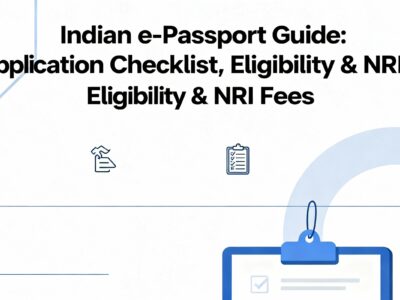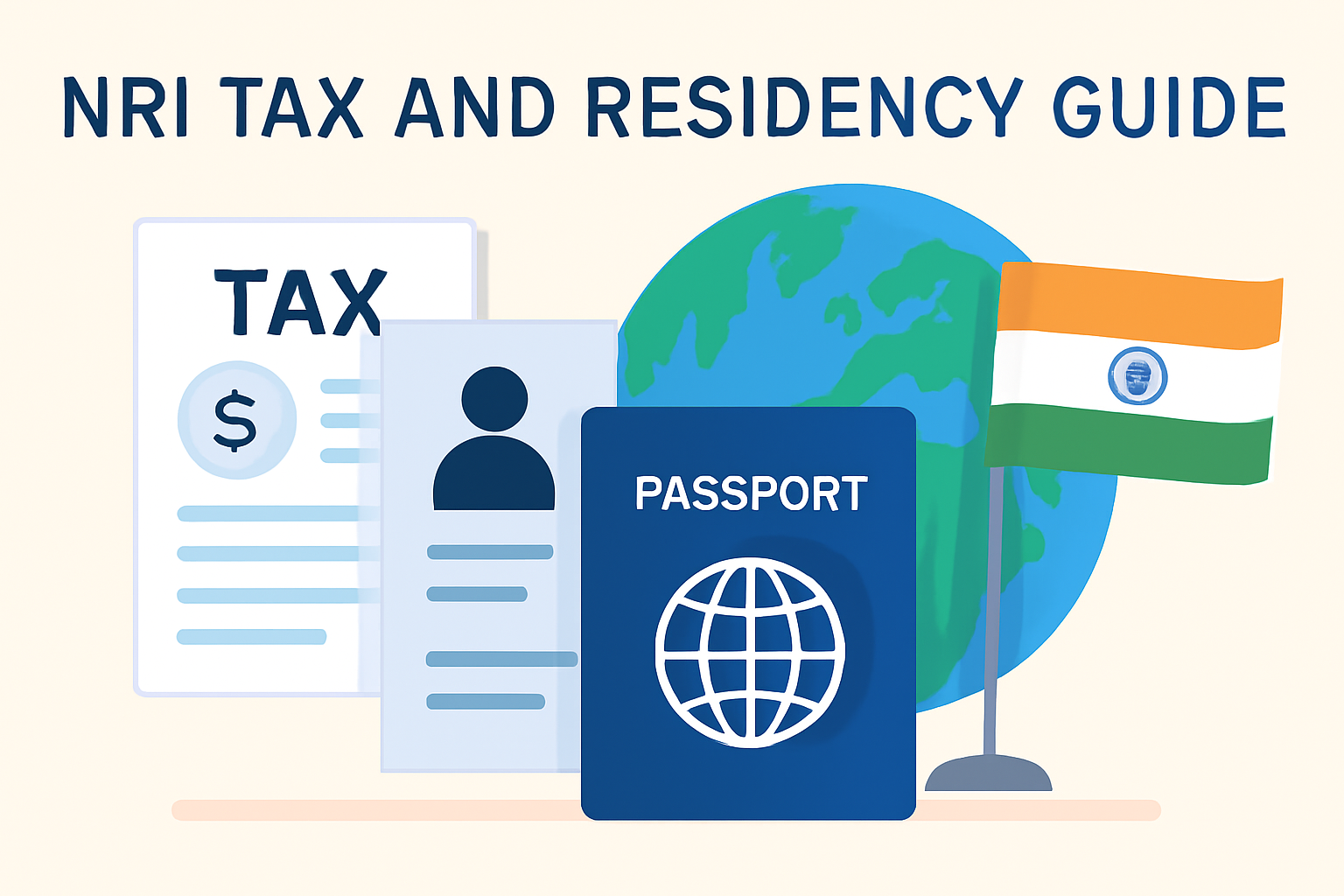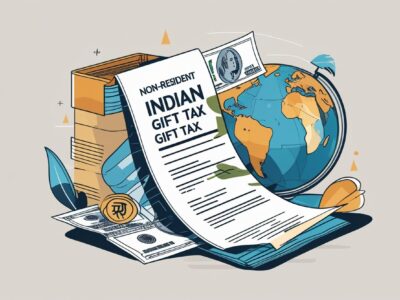Every year, Non-Resident Indians (NRIs) lose crores in inheritance, unable to claim their parents’ assets in India due to complex inheritance laws. The moment they try, they hit a legal wall: the demand for a “Succession Certificate.” This document triggers a grueling court process that freezes bank accounts, costs lakhs, and can take years to resolve. This definitive 2025 guide from Evaakil.com explains the challenges NRIs face and provides a clear, proactive solution—combining updated nominations with a Registered Will—to secure your family’s legacy without the legal battle.
NRI Inheritance Guide
The Inheritance Maze: Why Dying Without a Will in India is a Costly Mistake for NRIs
Last Updated: October 2025
For Non-Resident Indians (NRIs) with assets in India, inheritance can quickly become a legal labyrinth. The absence of a valid Will triggers a complex, court-supervised process that often leads to unauthorized property occupation, prolonged disputes, and immense financial and emotional distress. This guide unpacks the challenges and provides a clear roadmap to secure your family's future.
The Two Paths of Inheritance in India
Path 1: Intestate Succession (No Will)
Complex & Unpredictable
- » Court-driven process
- » Requires Succession Certificate
- » High costs & long delays
- » Invites family disputes
Path 2: Testamentary Succession (With a Will)
Simple & Controlled
- » Follows your wishes
- » Probate is streamlined
- » Minimal costs & faster
- » Prevents disputes
Unique Hurdles for the Non-Resident Indian
Beyond the standard complexities of Indian law, NRIs face a distinct set of logistical and regulatory challenges that can turn a difficult situation into an administrative nightmare.
Document Apostille & Attestation
Any official document issued abroad (e.g., Power of Attorney, death certificate if death occurred overseas) must be apostilled under the Hague Convention or attested by the local Indian Embassy, a time-consuming and bureaucratic step.
FEMA & RBI Regulations
Inheriting assets, especially property, and repatriating funds out of India are governed by the Foreign Exchange Management Act (FEMA) and Reserve Bank of India (RBI) rules. Non-compliance can lead to severe penalties.
Logistical & Communication Gaps
Managing legal proceedings from a different time zone, coordinating with lawyers, and making frequent trips to India for court appearances or document verification is physically and financially draining.
The Fragmented Legal Landscape
Unlike Western nations with uniform civil codes, India's succession framework is a mosaic of personal laws based on the deceased's religion. An NRI accustomed to secular laws is often unprepared for this system, where religious identity is the primary determinant of inheritance rights.
Hindu Succession Act, 1956
Applies to Hindus, Sikhs, Jains, Buddhists. Establishes a clear hierarchy of heirs (Class I, Class II).
Indian Succession Act, 1925
A uniform code for Christians, Parsis, and Jews with a codified framework for distribution.
Muslim Personal Law (Shariat)
Governed by Shariat, prescribing mathematically fixed shares for various family members.
A Real-World Scenario
Consider an NRI in California whose father passes away in Delhi without a Will. She arrives in India to find his bank accounts frozen. To access savings, shares, and deposits, she's told she needs a "Succession Certificate" from a court—a process that will take months, if not years. Meanwhile, a distant cousin occupies a portion of the family property, exploiting the legal vacuum. This is the unfortunate reality for countless NRI families.
The Succession Certificate: Your Biggest Obstacle
In the absence of a Will, the Succession Certificate is the mandatory court-issued decree required to gain control over a deceased's financial assets. Without it, banks and financial institutions will not release funds, leaving rightful heirs in a state of legal and financial paralysis.
Succession Certificate vs. Legal Heir Certificate
| Feature | Succession Certificate | Legal Heir Certificate |
|---|---|---|
| Purpose | To collect debts & securities (Bank A/Cs, Shares, FDs). | To identify living heirs for pensions, PF, utility transfers. |
| Issuing Authority | District Judge (Civil Court) | Revenue Authorities (Tahsildar) |
| Legal Standing | Conclusive proof of authority to collect. Legally protects the bank/payer. | Establishes relationship only. Not a court order for securities. |
| Validity | Valid throughout India. | Varies by state and purpose. |
The Gruelling Court Procedure: A Step-by-Step Breakdown
File Petition & Assemble Documents
File in the correct court with death certificate, proof of relationship, and a list of all assets. For NRIs, foreign documents must be apostilled or attested by an Indian Embassy.
45-Day Public Notice
The court issues a notice in a national newspaper, inviting objections. If an objection is filed, the case becomes a contested suit, leading to major delays.
Furnish Indemnity Bond
The petitioner must provide an indemnity bond, often for the full asset value, backed by sureties. This is a significant financial commitment and a logistical hurdle for many NRIs.
Final Grant of Certificate
If all conditions are met, the judge grants the certificate, specifying the assets the holder can collect. The typical timeline is 3-7 months in an ideal case, but often extends to over a year.
The True Cost: Calculate Your Potential Expenses
Enter the estimated value of the movable assets (bank deposits, shares, etc.) to see the potential cost of obtaining a Succession Certificate.
The Ultimate Solution: A Registered Will
The complexities of intestate succession can be almost entirely circumvented with one powerful instrument: a valid Will. This moves you from a reactive, uncertain path to a proactive, controlled process called testamentary succession. For an NRI, a registered Will is the single most effective strategy for a smooth transfer of assets.
The Power of Registration
While not mandatory, registering a Will with the Sub-Registrar is an invaluable step. It creates a strong presumption of authenticity, shifting the burden of proof to anyone who challenges it. This simple, cost-effective process deters frivolous claims and simplifies the probate process.
Will vs. Gift Deed: Choosing the Right Instrument
| Feature | Will | Gift Deed |
|---|---|---|
| Timing of Transfer | After the death of the testator. | Immediately upon registration. |
| Revocability | Fully revocable during testator's lifetime. | Irrevocable once executed. |
| Cost | Minimal drafting/registration fees. No stamp duty. | Mandatory registration with significant stamp duty. |
| Control over Asset | Testator retains full control. | Donor loses all control immediately. |
The Nominee Misconception: Trustee, Not Owner
A common, dangerous belief is that a nominee is the final owner. Legally, a nominee is merely a custodian. Their role is to receive the asset and transfer it to the legal heirs as determined by the Will or succession law. A Will determines ultimate ownership, while a nomination ensures quick access. Both are essential.
Sample Will Template (For Educational Purposes)
Disclaimer
This is a simplified, basic template and is NOT a substitute for professional legal advice. Indian law has specific requirements that must be met. Consult a qualified lawyer to draft a Will that fits your specific circumstances.
LAST WILL AND TESTAMENT OF [YOUR FULL NAME]
I, [Your Full Name], son/daughter of [Father's Name], aged [Age] years, residing at [Full Address], being of sound mind and memory, do hereby make, publish and declare this to be my last Will and Testament.
1. I hereby revoke all former Wills, Codicils and other testamentary dispositions made by me.
2. I appoint [Executor's Full Name], son/daughter of [Executor's Father's Name], residing at [Executor's Address], to be the sole Executor of this my Will.
3. My assets consist of the following:
(a) Immovable Property: [e.g., House at 123 ABC Street, Kolkata, West Bengal, India]
(b) Movable Property: [e.g., Bank balance in Savings Account No. XXXXXXX with XYZ Bank, shares, mutual funds, etc.]
4. I give, devise and bequeath my immovable property located at [Property Address] to [Beneficiary's Full Name] absolutely and forever.
5. I give, devise and bequeath all my movable assets to [Beneficiary's Full Name] absolutely.
IN WITNESS WHEREOF, I have set my hand to this my Will, this [Day] day of [Month], [Year] at [City, State].
_________________________
(Signature of Testator)
SIGNED by the above-named Testator in our presence, all being present at the same time, and we, at his/her request and in his/her presence and in the presence of each other, have hereunto subscribed our names as Witnesses.
Signature: __________________
Name: [Witness 1 Full Name]
Address: [Witness 1 Address]
Signature: __________________
Name: [Witness 2 Full Name]
Address: [Witness 2 Address]
Probate Explained: The Court's Stamp of Approval on a Will
While a Will simplifies inheritance, it often needs to be validated by a court. This process is called "Probate." It's a legal procedure where a court certifies the Will's authenticity and grants the Executor the authority to administer the estate. Think of it as the official green light for the Will.
When is Probate Mandatory?
Probate is not required for every Will in India. However, it is compulsory under two conditions:
- If the Will was made by a Hindu, Sikh, Jain or Buddhist within the territories of Mumbai, Kolkata, or Chennai.
- If the Will, made outside these territories, pertains to immovable property located within them.
Probate vs. Succession Certificate: The Key Differences
| Basis | Probate | Succession Certificate |
|---|---|---|
| Prerequisite | A valid Will must exist. | Issued only when there is no Will (intestacy). |
| Scope | Validates the Will for all assets, both movable and immovable. | Applies only to movable assets (debts and securities). |
| Granted to | The Executor named in the Will. | The legal heirs of the deceased. |
| Effect | Confers absolute title and right to administer the entire estate. | Authorizes the holder to collect specific debts and securities. |
Frequently Asked Questions
What's the difference between a Registered and a Notarized Will?
A Registered Will is recorded at the Sub-Registrar's office, giving it a strong presumption of validity and making it part of public records, which prevents tampering. A Notarized Will is simply signed before a notary public; this only verifies the identity of the person signing it and offers very little legal protection against challenges compared to registration.
Can I create one international Will for assets in India and abroad?
While technically possible, it is highly inadvisable. Succession laws vary drastically between countries. A Will that's valid in the US may not meet the legal requirements in India. The best practice is to have separate Wills for each jurisdiction where you hold significant assets. This is known as creating "situs" Wills.
What is the role of an Executor of a Will?
The Executor is the person you appoint in your Will to be in charge of carrying out your wishes. Their duties include: identifying all assets, paying off any debts or taxes, applying for probate if required, and distributing the assets to the beneficiaries as per the Will's instructions. It is a position of great trust and responsibility.
What happens if a Will is challenged in court?
A Will can be challenged on grounds like fraud, coercion, undue influence, or lack of testamentary capacity of the deceased. If challenged, the burden of proof is on the person challenging the Will (the caveator) to prove their claims, especially if the Will is registered. The court will examine evidence and witness testimonies to decide the Will's validity, a process that can be lengthy and expensive.
Your Actionable Checklist
Protecting your Indian assets requires decisive action. Follow these steps for a secure and smooth inheritance process.
Consult a Specialized Lawyer
Engage a legal expert in India who specializes in succession laws for NRIs.
Create Your Indian Will
Draft a clear, separate Will covering all movable and immovable assets in India.
Appoint a Reliable Executor in India
Choose a trustworthy, capable person based in India to manage the process efficiently.
Register Your Will
Take the crucial step of registering your Will at the local Sub-Registrar’s office for authenticity.
Review and Update All Nominations
Ensure every bank account, demat account, and insurance policy has an updated nominee.
Execute a Power of Attorney (POA)
Authorize a representative in India to handle formalities. Ensure it's correctly notarized and apostilled/attested.
Organize Your Documents
Consolidate all important originals in a secure location and inform your Executor.
Consider Advanced Options
For large estates, discuss Private Family Trusts with your legal and financial advisors.









